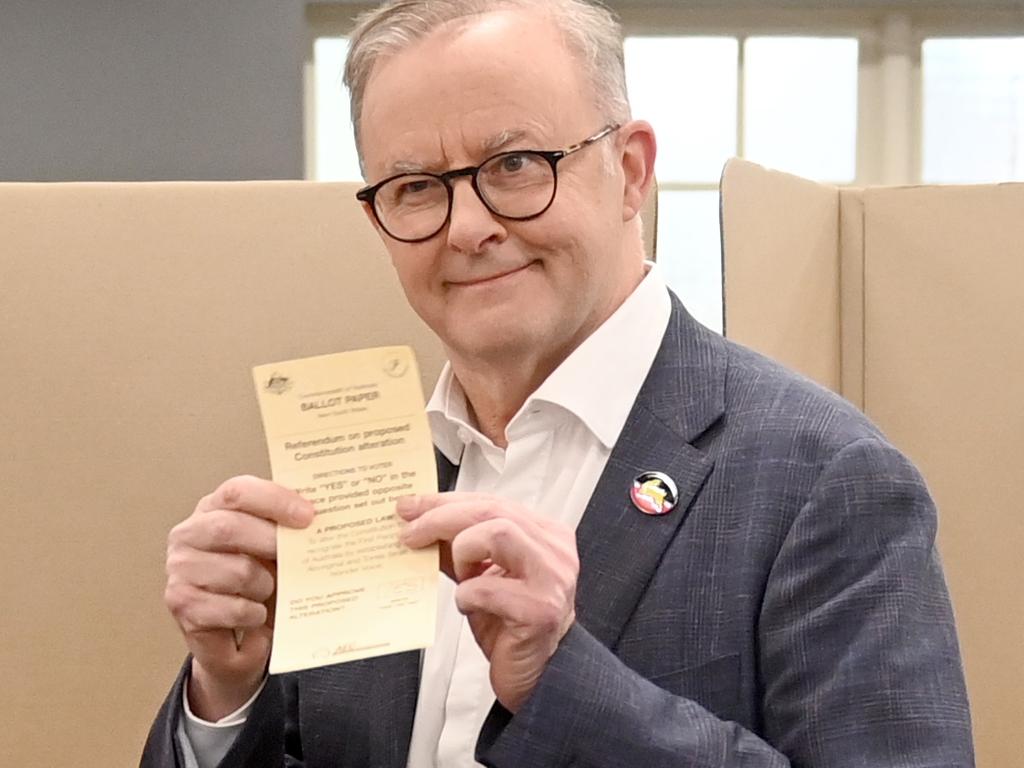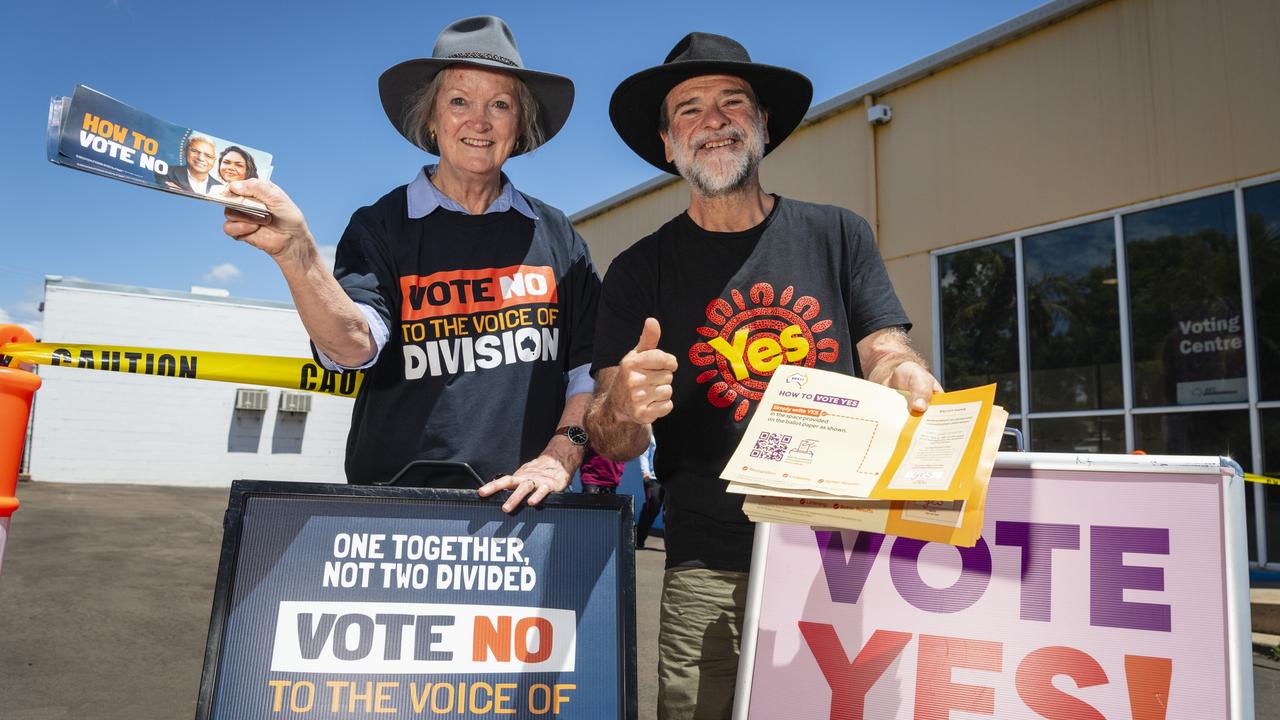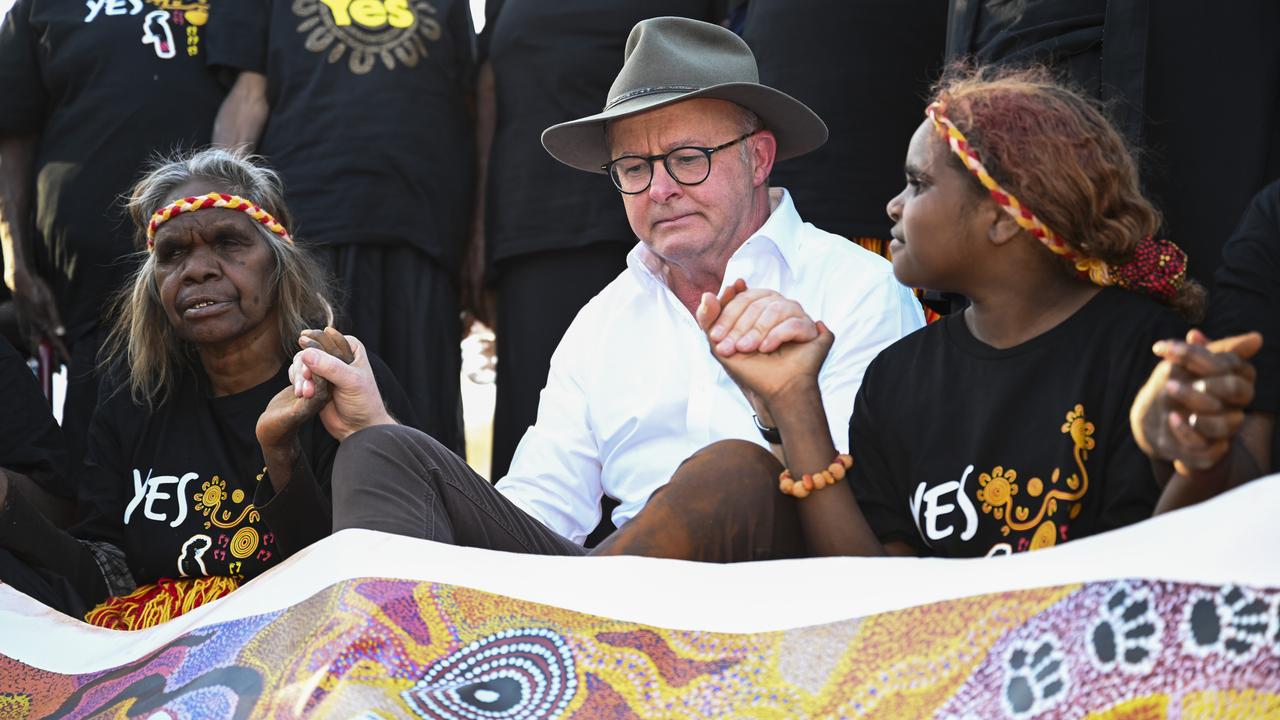Leading pollster declares there’s ‘no chance’ the Voice referendum will succeed
A leading pollster has declared the numbers are so bad in some states that Voice campaigners should “just give up” now, days out from voting.
A leading pollster has declared there is “no chance” the referendum on a Voice to Parliament will succeed and said in some states the polling is so bad that campaigners should give up now.
The latest data from Roy Morgan puts support for No at 50 per cent and the Yes vote at 45 per cent.
And fresh shock polling released today shows support among Indigenous Australians is at just 59 per cent – well below the 80 per cent claimed.
For the Voice referendum to get up, a double-majority needs to occur – a majority of all Australians voting Yes and a majority of states backing it.
“That’s just not going to happen,” Kos Samaras, director of polling firm Red Bridge, told news.com.au. “It’s all over.”

Red Bridge polling puts support for the Voice at about 40 per cent. No single state is polling a majority of Yes votes at this stage, Mr Samaras added.
“New South Wales and Victoria could go either way, but it’s really not that close. They’ve got the right demographic mix to sustain enough support.
“Even Tasmania, which has been declared as in support of the Voice in some polls – that was a very small sample.
“On the flip side, Queensland and Western Australia are overwhelmingly No and there’s no coming back.”
In WA and Queensland, the numbers are so bad for the Yes campaign that Mr Samaras said “they should just give up, I’m afraid”.

In the past week, some commentators have said hope for the referendum remains because of a high number of undecided and soft voters, which was said to be about 20 per cent of the country.
“I don’t think it’s 20 per cent,” Mr Samaras added.
“I’ve heard people saying it’s 20 per cent but that really just seems large. Newspoll this week had the undecided pool at about eight per cent. I think it’s probably about 10 per cent.”
Roy Morgan’s latest polling, released yesterday, puts the undecided vote at five per cent.
But regardless, Mr Samaras said it’s clear the vast majority of those who are yet to make up their mind remain “confused” about the Voice.
“The problem you have is that most of those undecided voters are still very confused, and you generally don’t vote in favour of something you don’t understand.
“I expect that in that undecided pool, it’ll be 60 per cent No.”

When Prime Minister Anthony Albanese initially announced his intention to take the Voice to a referendum, polls indicated that about 60 per cent of the country supported the notion.
That figure quickly fell, with “patterns of eroding support emerging very early”, Mr Samaras said.
“Based on all polls we’ve seen, it will be hard for Yes to succeed,” he said.
Those watching the count on Saturday night can expect to see an early rush of No votes as smaller and regional booths are reported.
“The regions will predominantly vote no,” he said.
“There will be significant support in wealthy inner-city electorates like Sydney, Brisbane, Kooyong and the like. That will drop off as you get into the suburbs. That will be the pattern of the vote.”
The Australian Electoral Commission at the weekend said some 2.2 million people have already cast their votes at pre-poll locations across the country.
That figure is expected to rise throughout the week.





